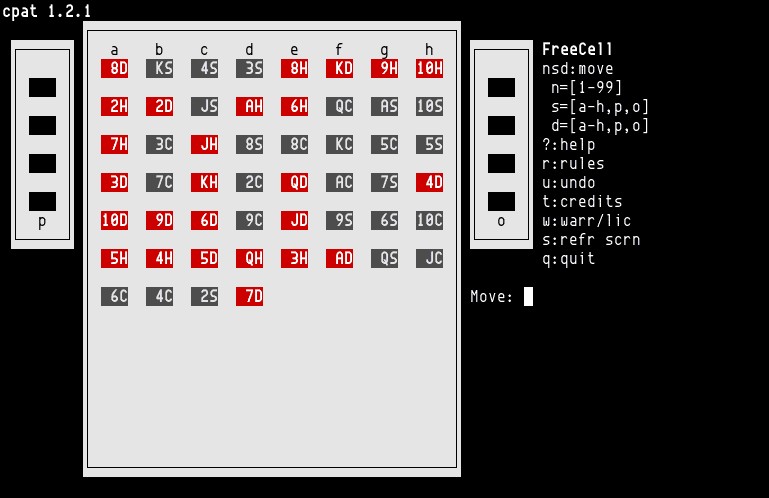CPat is a Patience suite game, including 11 solitaire games:

FreeCell, Klondike, Spider, 40 Thieves, Bakers Dozen, Scorpion, Penguin, Yukon, Strategy, Canfield, Duchess.
Since its all-in-one, you can have a unified controls, its all the same way to move a card, put into foundations, and so on. It also has help and rule screens to help you understand the card game.
There is also game statistics and high scores to keep records. There is one useful command-line option, -f, to speed up auto-moves, that is when you using free cells to move a stack of cards, it will move one by one to show the movements, but the default speed is too slow. -f can be used for multiple times, for example, -fff.
When move to the foundations, #pp or P will really be helpful since it doesnt do like some implementations will automatically move to the foundations for you, such as freecell.
CPat was created by Trevor Carey-Smith on 2006-02-16 (v0.1), based on Steve Levines code, written in C with ncurses, currently version 1.2.1 (2008-09-16).


